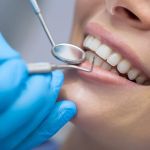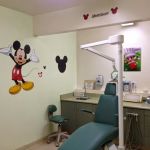Oral infections can be a pesky and sometimes serious problem. When facing a toothache or a gum infection, many wonder, "Is antibiotic treatment necessary?" In the United States, where healthcare decisions are often swayed by past experiences and cultural tendencies, understanding when antibiotics are appropriate is crucial. Oral infections can range from mild to severe, sometimes requiring intervention beyond traditional oral care practices. It's essential to discern when antibiotics are necessary for the treatment of oral infections and how to select the correct medication judiciously.
The Nature of Oral Infections
Oral infections are commonly caused by bacteria, fungi, or viruses that invade the tissues in the mouth. These infections manifest as abscesses, gingivitis, periodontitis, and even more severe systemic conditions if left untreated. Understanding the root cause is critical to determining the necessity of antibiotics. For instance, bacterial infections such as abscesses might necessitate antibiotic intervention, while viral infections like cold sores are usually self-limiting and do not benefit from such treatment. In the U.S., dentists and healthcare professionals rely on clinical diagnoses and sometimes lab tests to ascertain the infectious agent before prescribing antibiotics.
When Are Antibiotics Necessary?
The decision to use antibiotics should not be taken lightly, given concerns over antibiotic resistance. In cases where oral infections do not respond to standard care like improved oral hygiene, antiseptics, or pain management, antibiotics are considered. Severe infections characterized by swelling, fever, and systemic signs require prompt attention and often antibiotic therapy. For example, a dental abscess that leads to spreading cellulitis needs urgent antibiotic intervention to prevent systemic infection. According to the American Dental Association, augmentation with antibiotics is essential when local infections pose a threat to facial structures or overall health.
How to Choose the Right Antibiotic
Once the decision to use antibiotics is made, selecting the appropriate type is crucial. Dentists typically consider factors such as bacterial specificity, patient's medical history, and potential side effects. Amoxicillin is commonly prescribed for many dental infections, offering a broad spectrum with a safety profile suitable for most patients. For those allergic to penicillin, alternative antibiotics like clindamycin or azithromycin are often used. Resistance patterns and individual patient factors like age, allergies, or kidney function may further guide the selection process. Dentistry Toothtruth emphasizes the importance of personalized care and adhering to the dentist's recommendations for successful outcomes.
Alternatives and Complementary Treatments
While antibiotics play a critical role, exploring complementary treatments can enhance recovery and minimize antibiotic use. Probiotics, for instance, can support gut flora while taking antibiotics and help rebalance the oral microbiome post-treatment. Natural remedies like saline rinses and herbal extracts such as echinacea may provide symptomatic relief and support healing. However, it is important to note that these options should not replace professional medical advice but can be integrated into a broader treatment plan. At Dentistry Toothtruth, we advise discussing all possible options with your healthcare provider to ensure the best course of action.
Promoting Responsible Antibiotic Use
Finally, promoting responsible antibiotic use is vital in curtailing resistance and preserving antibiotic efficacy. Patients should adhere strictly to prescribed dosages, complete the full course even if symptoms improve, and avoid self-prescribing leftover antibiotics. Educating patients on the significance of appropriate antibiotic use is a priority at Dentistry Toothtruth, reinforcing the broader public health goal of sustainable healthcare practices.
In conclusion, while antibiotics are sometimes indispensable in treating oral infections, making an informed decision requires understanding the nature of the infection, when antibiotics are warranted, and how to choose the right medication. As patients, being proactive in your treatment by engaging in dialogue with your healthcare provider and exploring complementary therapies is crucial. Responsible antibiotic use not only ensures effective recovery but also supports global efforts in combating antibiotic resistance. For comprehensive information, resources, and guidance on oral health, visit Dentistry Toothtruth.




 Sierra Family Dentistry4.0 (17 review)
Sierra Family Dentistry4.0 (17 review) Schnierow Dental Care3.0 (177 review)
Schnierow Dental Care3.0 (177 review) Twin Hickory Dental4.0 (147 review)
Twin Hickory Dental4.0 (147 review) Advanced Family Dental & Orthodontics4.0 (130 review)
Advanced Family Dental & Orthodontics4.0 (130 review) NÜVA Smile4.0 (519 review)
NÜVA Smile4.0 (519 review) Monarch Dental & Orthodontics4.0 (557 review)
Monarch Dental & Orthodontics4.0 (557 review) The Importance of Oral Health Education During Pregnancy for a Healthy Pregnancy
The Importance of Oral Health Education During Pregnancy for a Healthy Pregnancy Best Tips for Brushing Your Teeth Properly for Healthy Gums: Essential Techniques for Oral Health
Best Tips for Brushing Your Teeth Properly for Healthy Gums: Essential Techniques for Oral Health Why Skipping Dental Checkups Can Lead to Bigger Oral Health Problems
Why Skipping Dental Checkups Can Lead to Bigger Oral Health Problems Advantages of Porcelain Dental Restorations
Advantages of Porcelain Dental Restorations How Can Diabetes Cause Tooth and Gum Problems? Preventing and Managing Oral Health Issues
How Can Diabetes Cause Tooth and Gum Problems? Preventing and Managing Oral Health Issues Healthy Habits for Promoting Good Oral Health and Hygiene: Tips for a Healthy Smile
Healthy Habits for Promoting Good Oral Health and Hygiene: Tips for a Healthy Smile